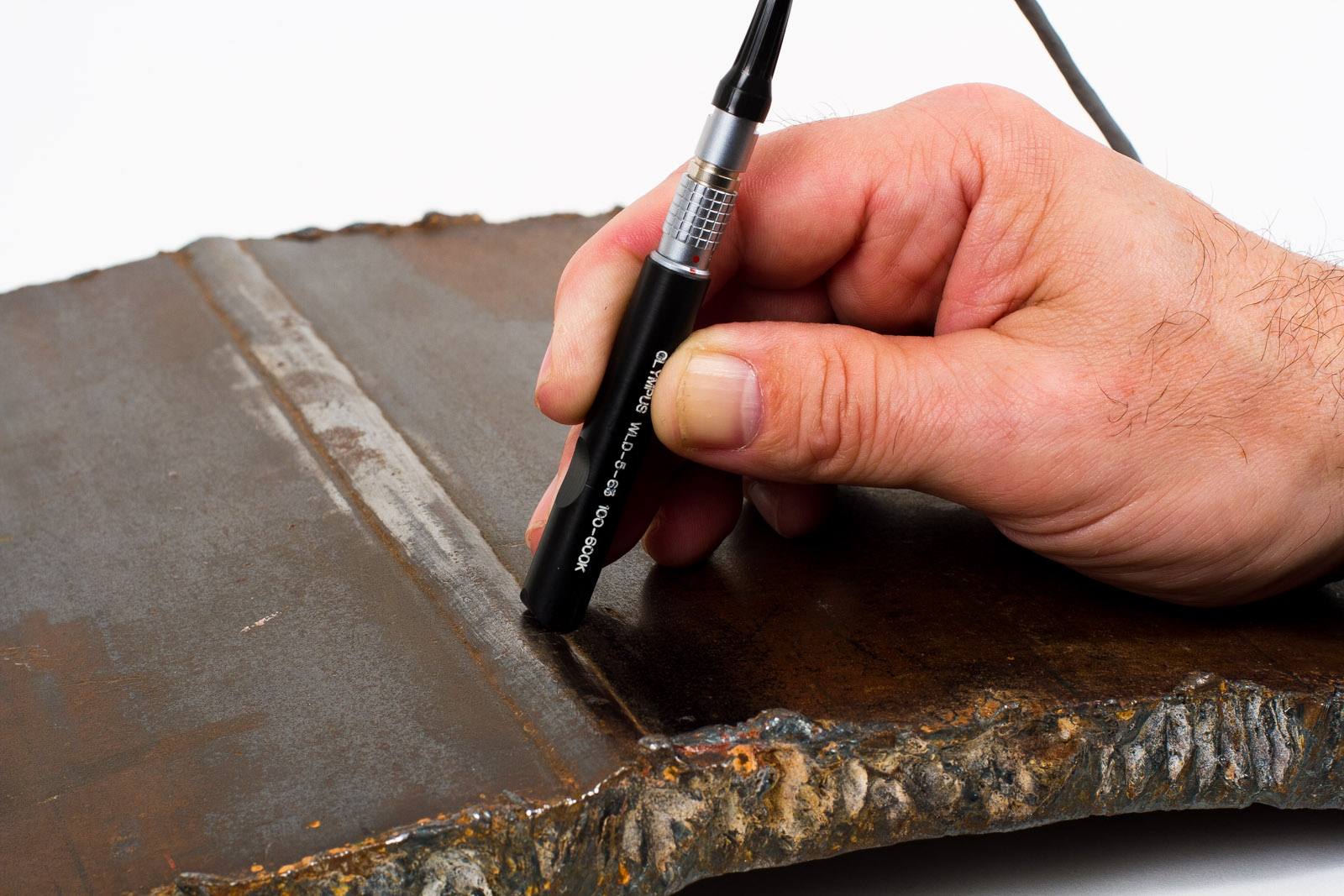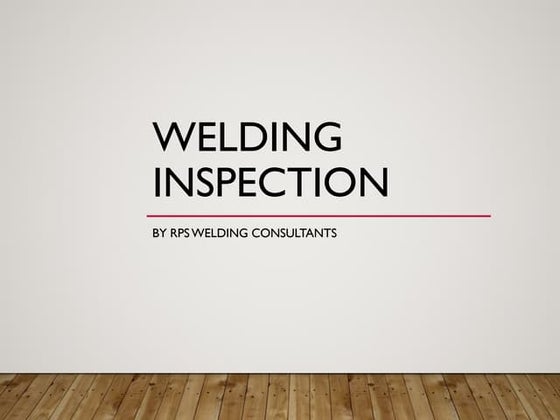Maximize Your Welding High Quality with Professional Inspection Services in Gilbert Arizona
The Influence of Rigorous Welding Examination on Sector Specifications: Supporting Security, Reliability, and Conformity Throughout Different Markets
The function of strenuous welding assessment is progressively acknowledged as a crucial component in boosting industry criteria, where compliance, safety, and dependability take precedence across diverse industries. What improvements might we expect in welding methodologies as the need for high quality and safety and security intensifies?
Significance of Welding Evaluations
Acknowledging the critical function of welding inspections in maintaining top quality and safety and security requirements, sector experts focus on these assessments to ensure architectural integrity. Welding examinations work as a vital checkpoint in the fabrication process, identifying problems that can compromise the sturdiness and safety and security of welded structures. By systematically assessing welds, examiners can discover concerns such as incomplete infiltration, porosity, and cracks, which may not show up to the nude eye.
The value of these assessments extends past mere compliance; they are crucial for safeguarding lives and safeguarding financial investments. In vital markets such as aerospace, production, and building, a solitary damaged weld can result in devastating failures, leading to both financial loss and human casualties. Consequently, executing rigorous inspection procedures minimizes these threats and boosts general task reliability.
Additionally, regular welding inspections promote a society of top quality throughout organizations, urging welders to abide by best techniques and maintain high standards in their job. This dedication to top quality not just boosts operational performance yet additionally enhances the online reputation of business within their corresponding fields. Therefore, welding inspections are important in promoting security, integrity, and conformity throughout various industries.
Secret Industry Specifications and Laws
The framework of welding examinations is underpinned by a robust set of market criteria and guidelines that control techniques throughout various markets. Trick establishments, such as the American Welding Culture (AWS) and the International Company for Standardization (ISO), develop guidelines that make certain top quality and safety and security in welding operations. AWS D1.1 lays out vital needs for welding steel structures, while ISO 3834 specifies quality requirements for combination welding.
Along with these particular criteria, market laws like the American National Criteria Institute (ANSI) and Occupational Safety and Health Management (OSHA) requireds better boost compliance by setting security protocols and operational finest practices. These policies are essential in markets such as building and construction, manufacturing, and aerospace, where welding integrity is extremely important.
Furthermore, sector-specific criteria, such as those from the American Culture of Mechanical Engineers (ASME) for pressure vessels, supply extra layers of analysis to ensure that welds meet strict safety and efficiency standards. Adherence to these requirements not only assists in governing compliance but likewise cultivates a culture of quality and integrity across the welding market, eventually securing public welfare and boosting operational efficiency.

Benefits of Compliance and Dependability
Regularly adhering to market standards and regulations in welding evaluations yields considerable benefits, boosting general reliability and performance. The foremost advantage is the guarantee of quality in welded joints, which directly adds to the security of structures and tools. Conformity with established standards lessens the risk of failure and disastrous events, consequently safeguarding both human life and useful possessions.
In addition, organizations that focus on extensive welding assessments foster a culture of visit site responsibility and professionalism and trust. This commitment not only reinforces the credibility of the company however also imparts self-confidence in clients and stakeholders concerning the integrity of product or services. Reputable welding procedures cause lowered prices connected with rework, repair work, and prospective lawful responsibilities coming from below average workmanship.
Furthermore, keeping conformity with industry requirements assists in smoother regulatory communications, as companies can easily show adherence to needed protocols (Welding Inspection Gilbert Arizona). This proactive approach can result in helpful collaborations and chances within the industry, as well as accessibility to brand-new markets
Difficulties in Welding Examination
Navigating the intricacies of welding evaluation provides a myriad of difficulties that can prevent conformity with market standards. The lack of standardized training for inspectors can result in varied analyses of assessment requirements, which might endanger security and integrity.
One more obstacle exists in the access of innovative assessment devices - Welding Inspection Gilbert Arizona. While technologies such as ultrasonic screening and radiography can improve discovery capacities, their implementation may be limited by expense or schedule, particularly in smaller sized procedures. This variation can result in a dependence on much less reliable assessment approaches, enhancing the danger of unnoticed problems
Additionally, the hectic nature of modern production typically pressures inspectors to prioritize speed over thoroughness, possibly overlooking essential flaws. Finally, regulatory conformity can be daunting because of the advancing nature of industry criteria, leaving organizations struggling to keep up with the current needs. These difficulties require continuous enhancement in evaluation techniques to ensure the honesty of bonded structures throughout various sectors.
Future Trends in Welding Practices
Emerging innovations and progressing approaches are readied to change welding techniques in the coming years. Advancements in automation, such as robot welding systems, are gaining grip, improving accuracy and effectiveness while lessening human mistake. These systems will not only quicken manufacturing but also promote regular quality assurance, dealing with some of the difficulties faced in manual welding.
Furthermore, the assimilation of fabricated intelligence (AI) and artificial intelligence right into welding processes is positioned to change evaluation and tracking. Real-time data analytics will enable predictive maintenance, permitting for proactive treatments that minimize downtime and rise safety and security. Moreover, boosted fact (AR) and digital truth (VIRTUAL REALITY) innovations are coming to be crucial in training welders, providing immersive experiences that boost skill growth without the threats related to standard methods.
Sustainability is also a crucial trend, as markets seek greener practices. The fostering of environment-friendly products and techniques, along with energy-efficient machinery, will likely become basic. As markets adapt to these changes, the emphasis will certainly change toward greater compliance with safety and security and environmental regulations, making certain that welding view publisher site techniques not only meet existing criteria however additionally lead the means for a much safer home and more lasting future.

Conclusion
In final thought, extensive welding examinations considerably improve market requirements by ensuring safety and security, reliability, and compliance throughout different industries. As sectors proceed to prioritize functional stability, the importance of thorough evaluations will only increase, ultimately benefiting services and society at huge.
The role of strenuous welding assessment is increasingly recognized as an important part in boosting industry requirements, where safety, compliance, and dependability take precedence throughout diverse markets. Therefore, welding examinations are important in advertising security, integrity, and compliance throughout various sectors.
Secret establishments, such as the American Welding Culture (AWS) and the International Organization for Standardization (ISO), establish guidelines that make sure quality and safety in welding operations. AWS D1.1 lays out essential needs for welding steel structures, while ISO 3834 specifies quality requirements for fusion welding.
In conclusion, rigorous welding assessments substantially boost industry requirements by making certain security, reliability, and compliance across numerous industries.